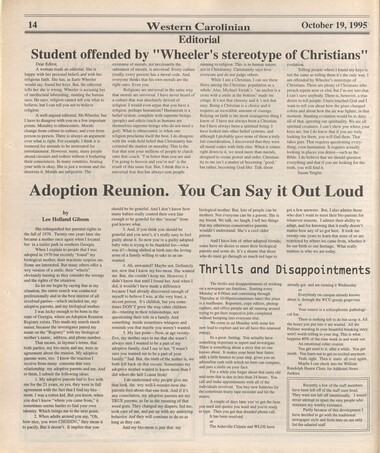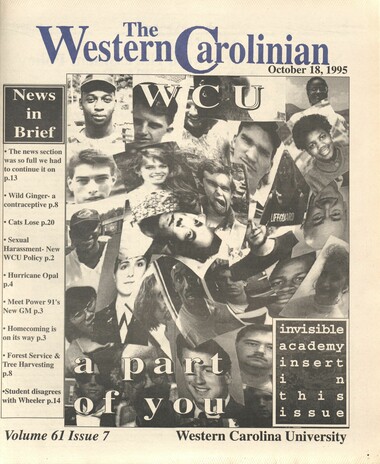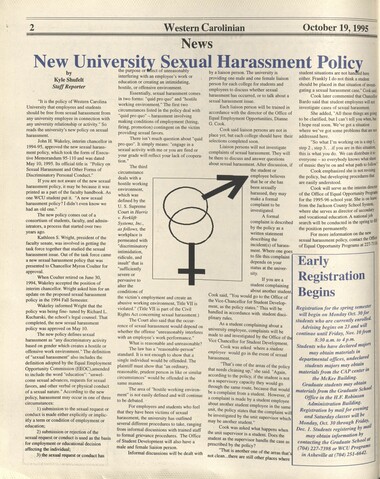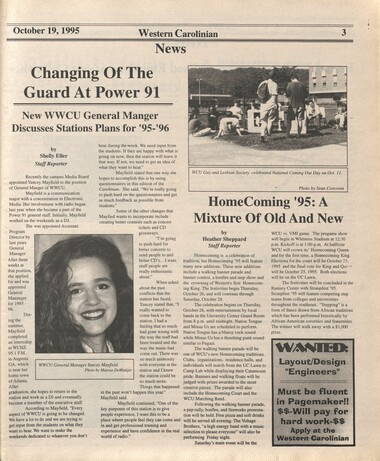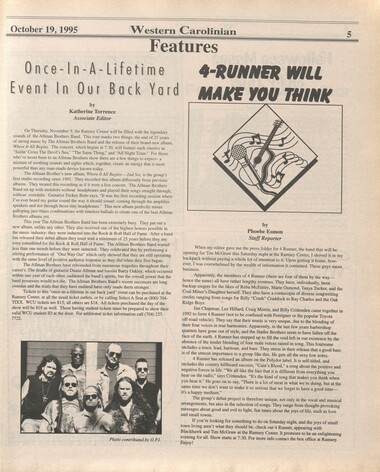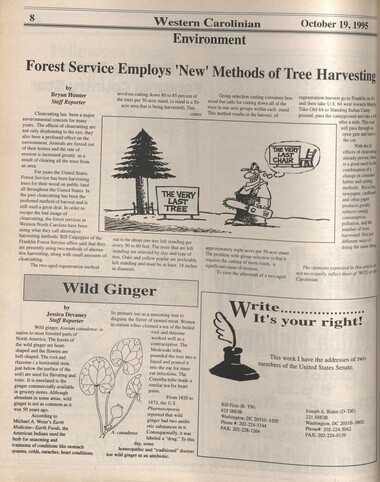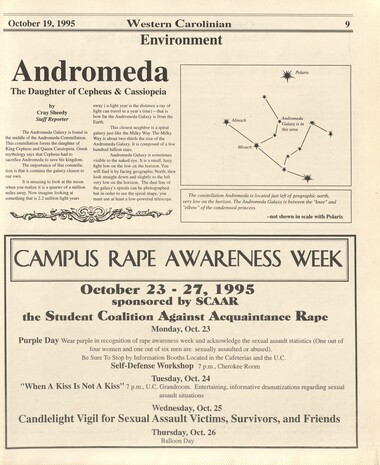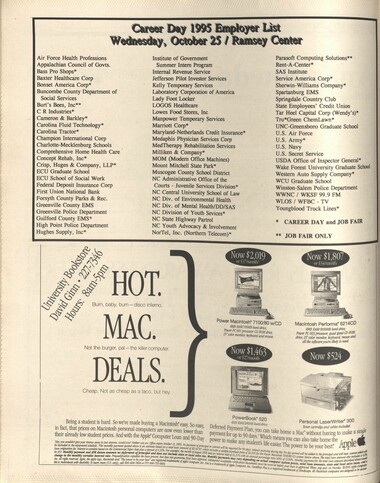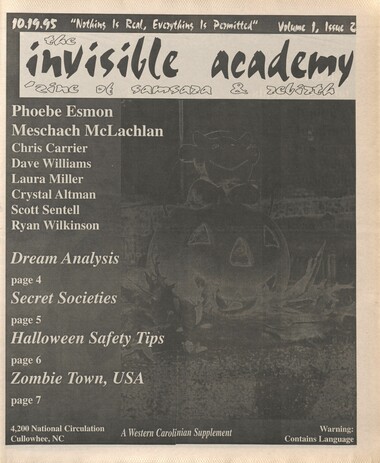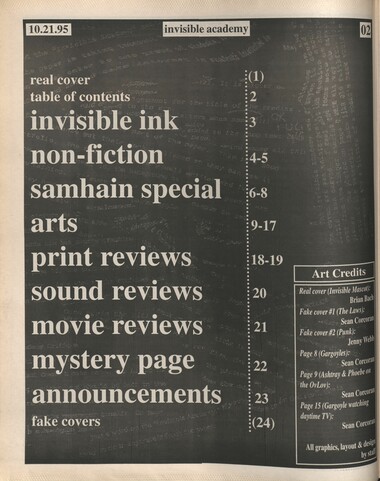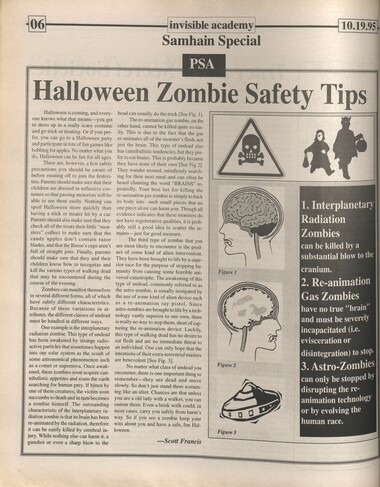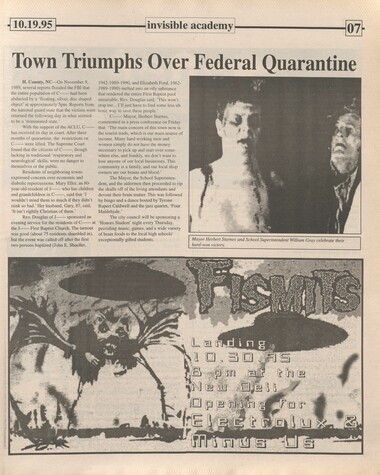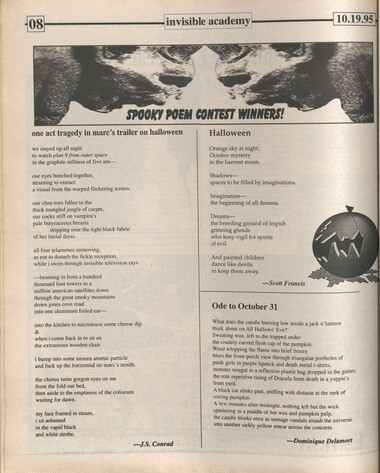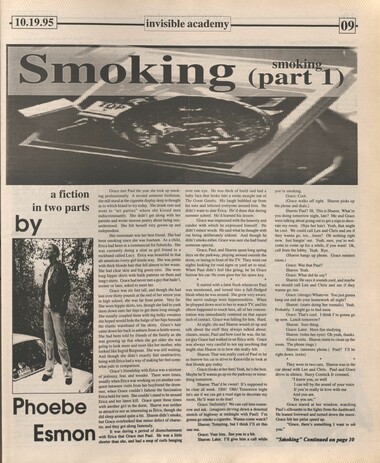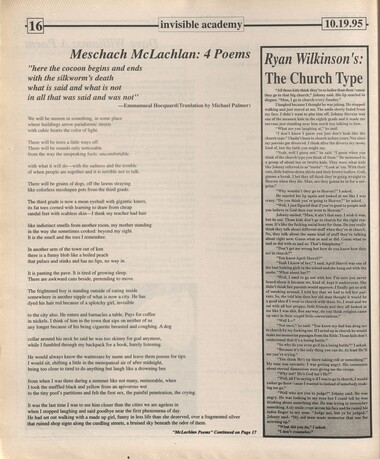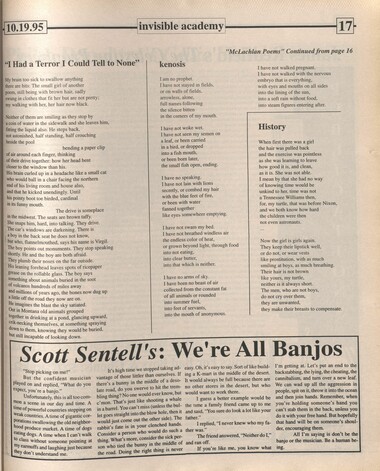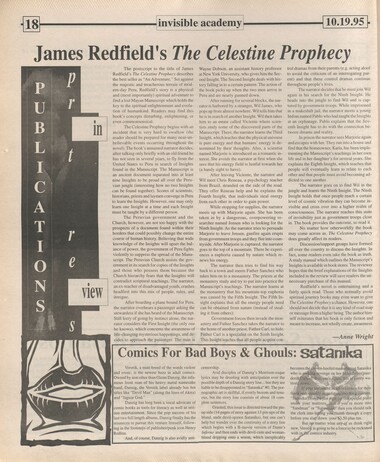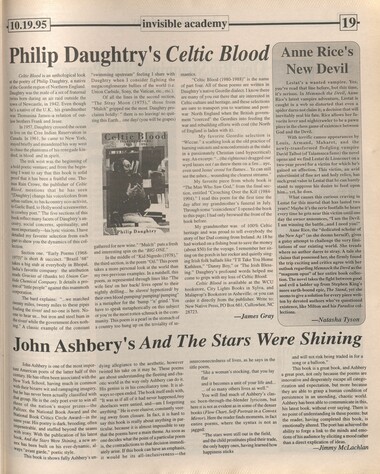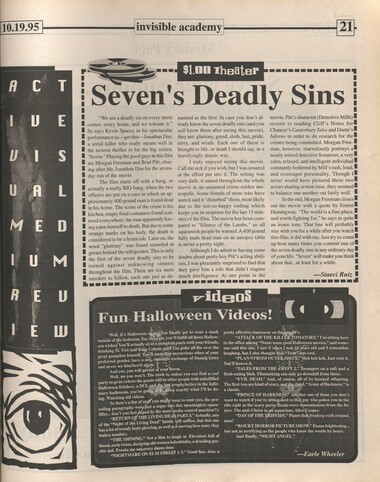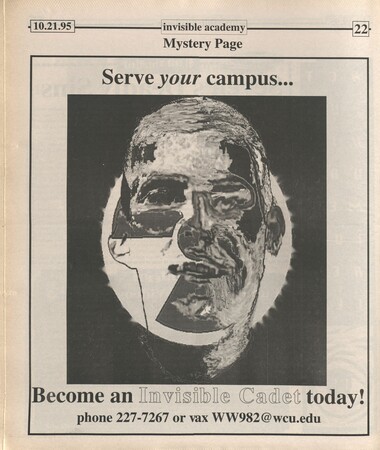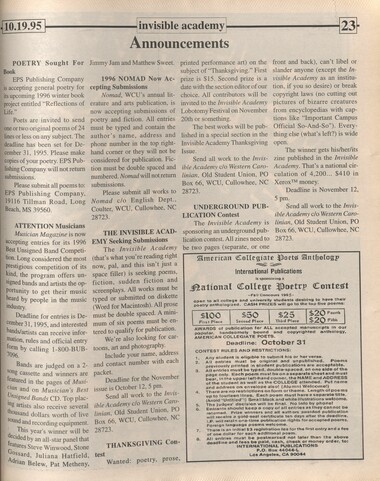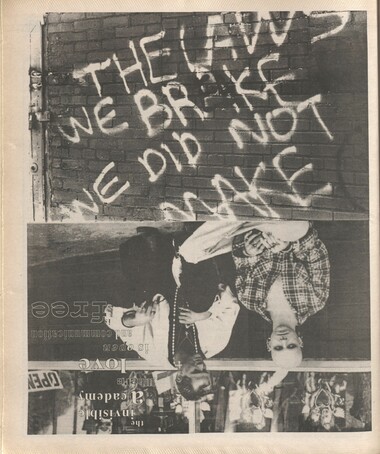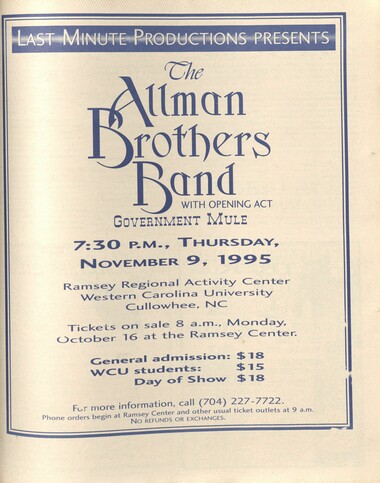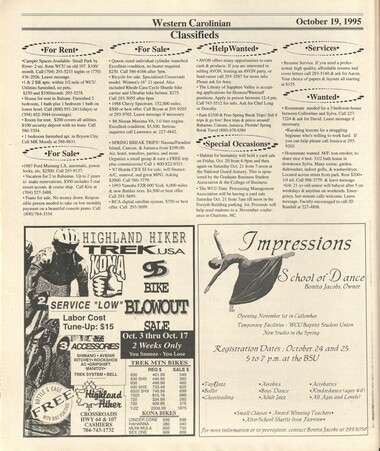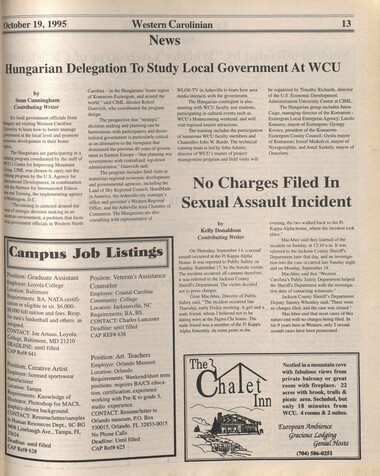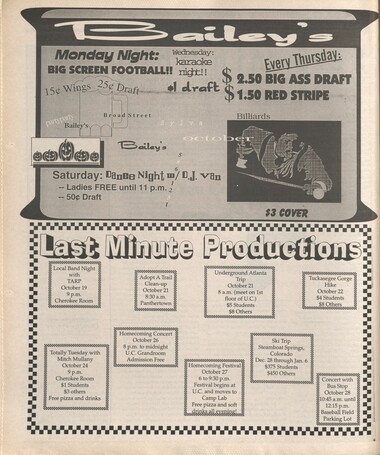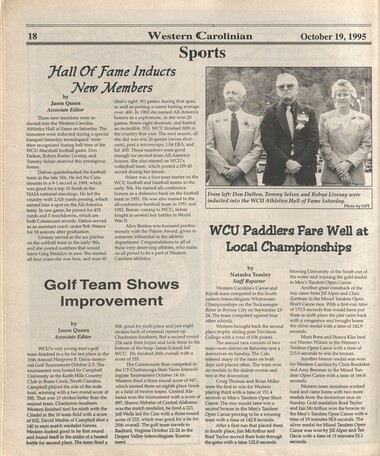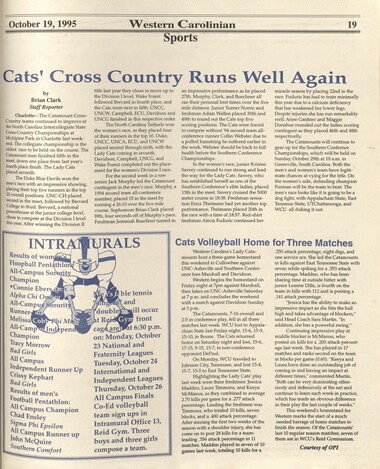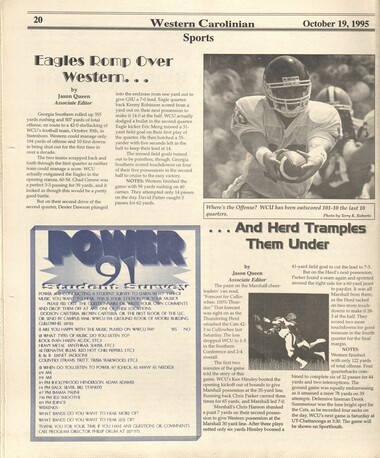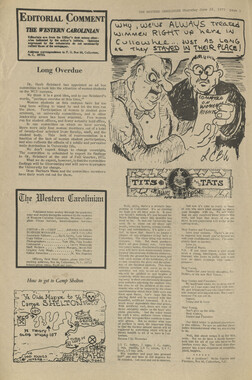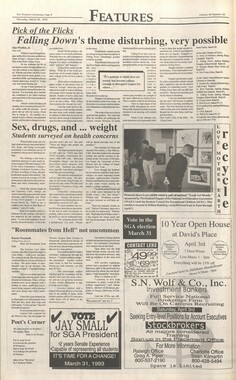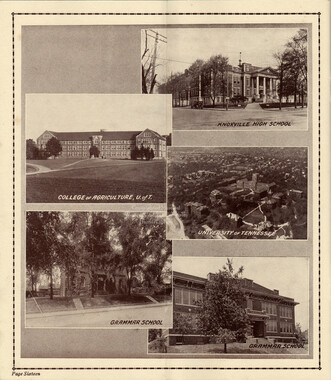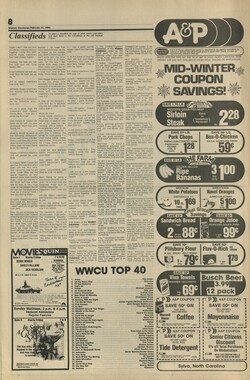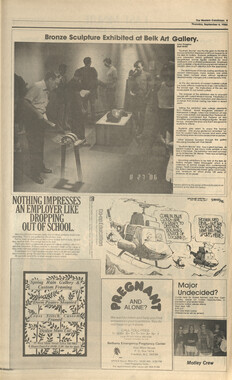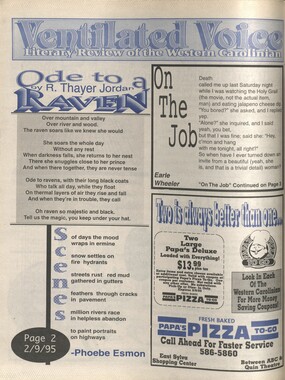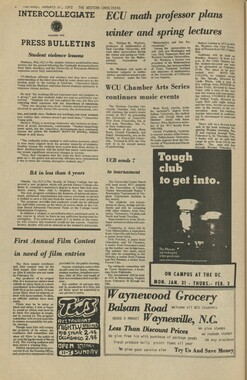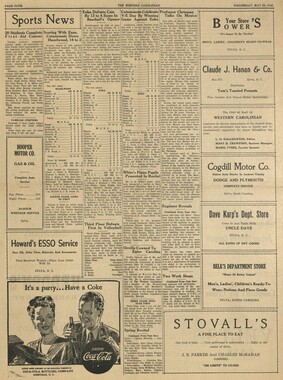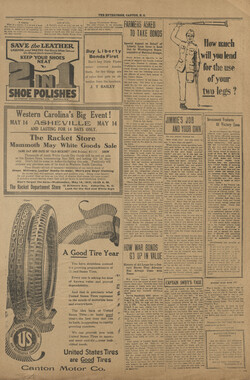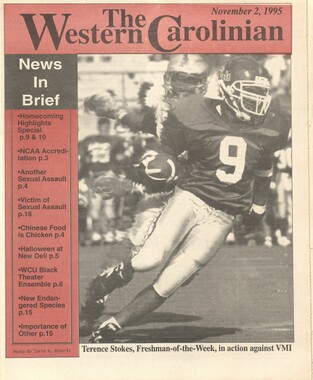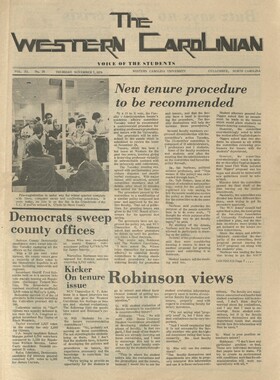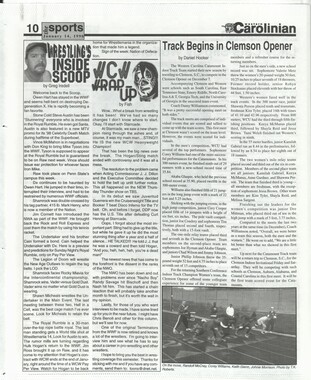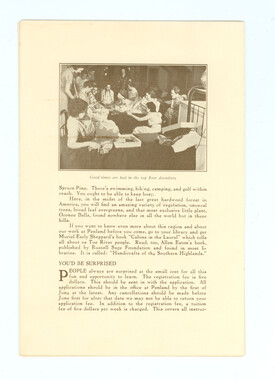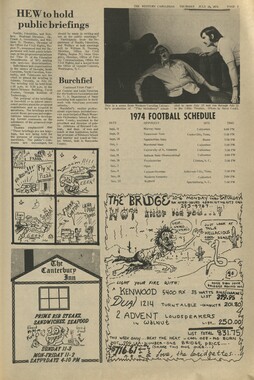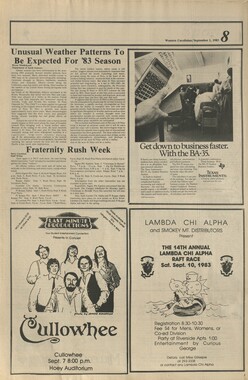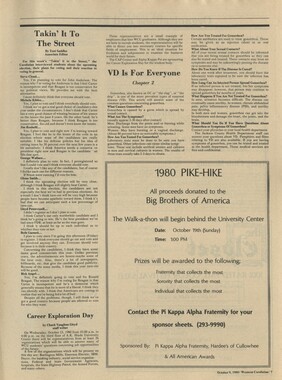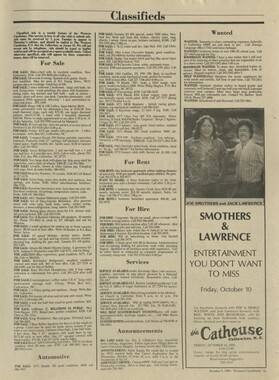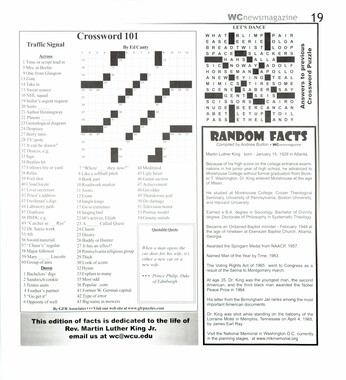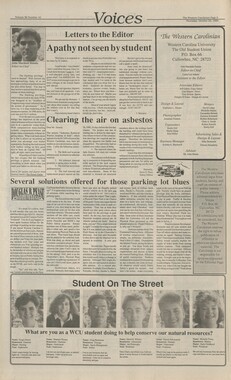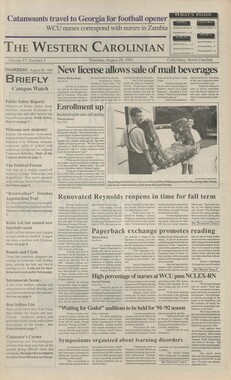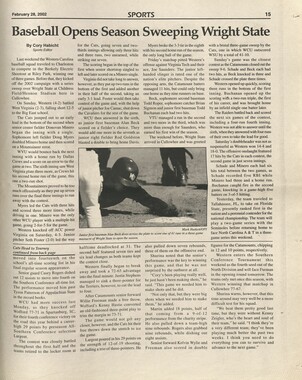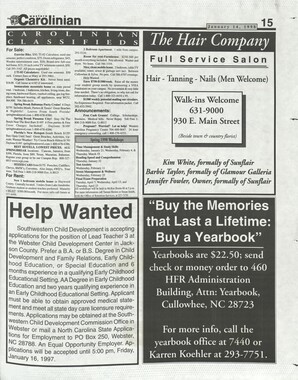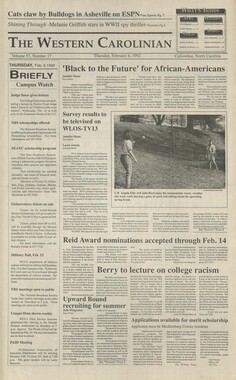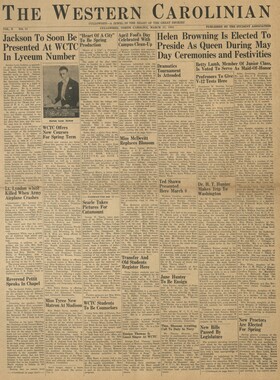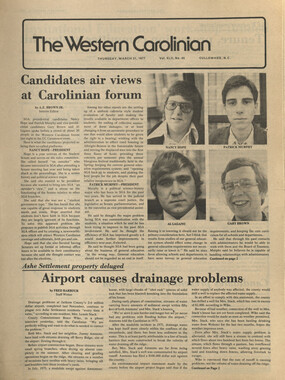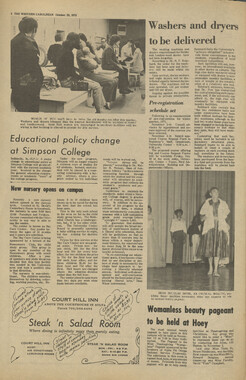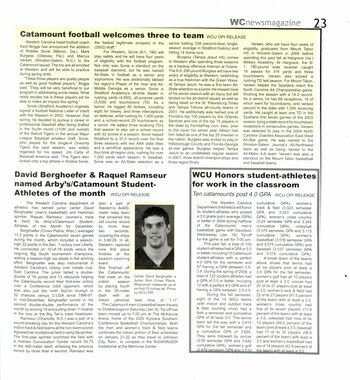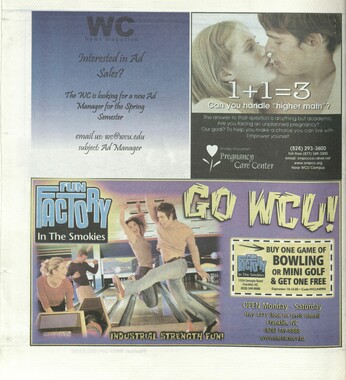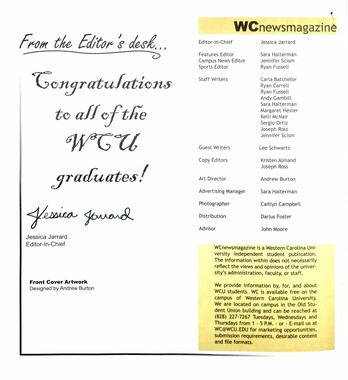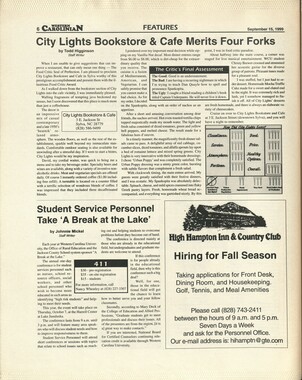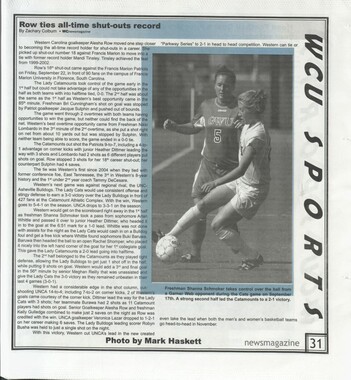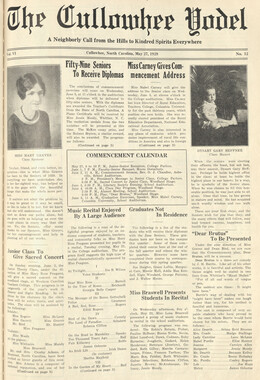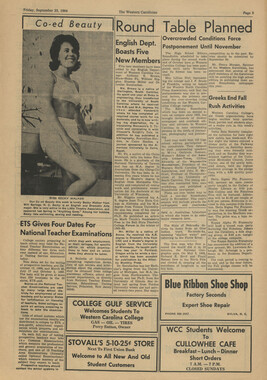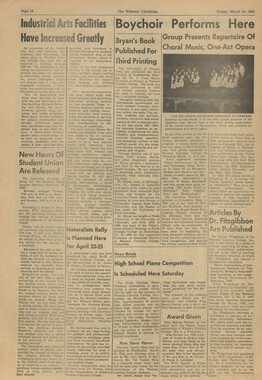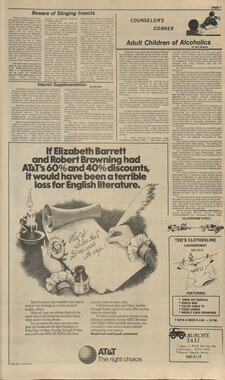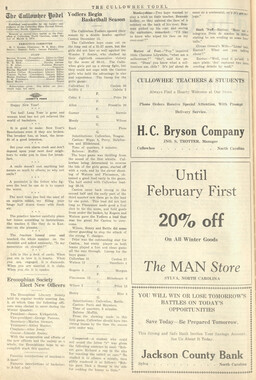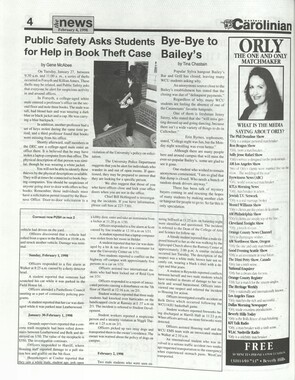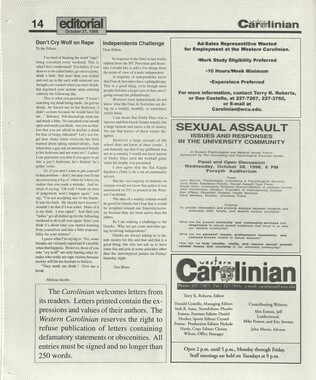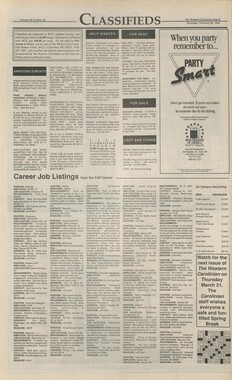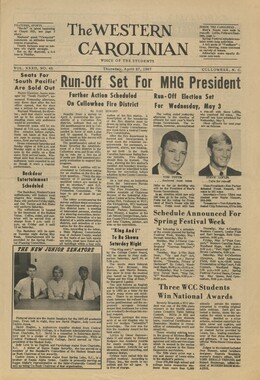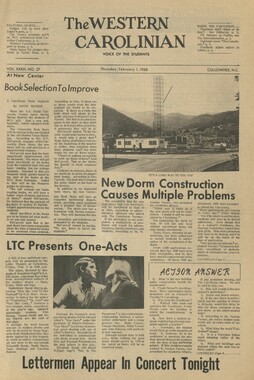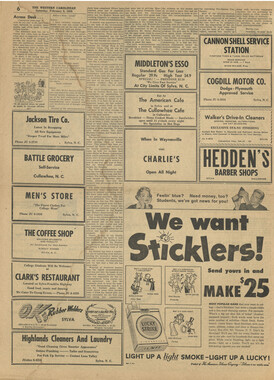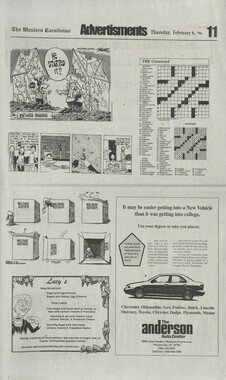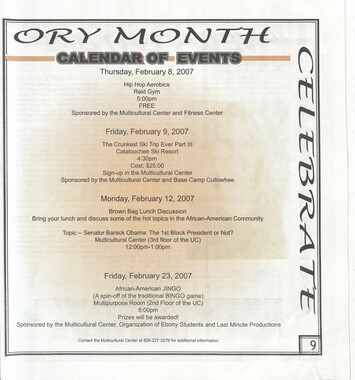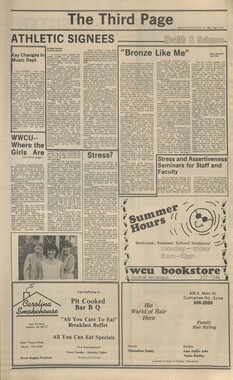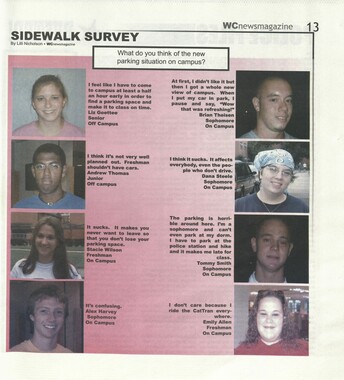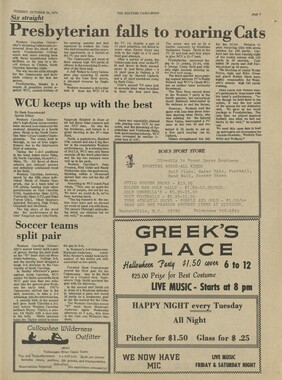Western Carolina University (21)
View all
- Canton Champion Fibre Company (2308)
- Cherokee Traditions (291)
- Civil War in Southern Appalachia (165)
- Craft Revival (1942)
- George Masa Collection (137)
- Great Smoky Mountains - A Park for America (3080)
- Highlights from Western Carolina University (422)
- Horace Kephart (973)
- Journeys Through Jackson (159)
- LGBTQIA+ Archive of Jackson County (89)
- Oral Histories of Western North Carolina (318)
- Picturing Appalachia (6617)
- Stories of Mountain Folk (413)
- Travel Western North Carolina (153)
- Western Carolina University Fine Art Museum Vitreograph Collection (129)
- Western Carolina University Herbarium (92)
- Western Carolina University: Making Memories (738)
- Western Carolina University Publications (2491)
- Western Carolina University Restricted Electronic Theses and Dissertations (146)
- Western North Carolina Regional Maps (71)
- World War II in Southern Appalachia (131)
University of North Carolina Asheville (6)
View all
- Allanstand Cottage Industries (62)
- Appalachian National Park Association (53)
- Bennett, Kelly, 1890-1974 (1463)
- Berry, Walter (76)
- Brasstown Carvers (40)
- Carver, George Washington, 1864?-1943 (26)
- Cathey, Joseph, 1803-1874 (1)
- Champion Fibre Company (233)
- Champion Paper and Fibre Company (297)
- Cherokee Indian Fair Association (16)
- Cherokee Language Program (22)
- Crowe, Amanda (40)
- Edmonston, Thomas Benton, 1842-1907 (7)
- Ensley, A. L. (Abraham Lincoln), 1865-1948 (275)
- Fromer, Irving Rhodes, 1913-1994 (70)
- George Butz (BFS 1907) (46)
- Goodrich, Frances Louisa (120)
- Grant, George Alexander, 1891-1964 (96)
- Heard, Marian Gladys (60)
- Kephart, Calvin, 1883-1969 (15)
- Kephart, Horace, 1862-1931 (313)
- Kephart, Laura, 1862-1954 (67)
- Laney, Gideon Thomas, 1889-1976 (439)
- Masa, George, 1881-1933 (61)
- McElhinney, William Julian, 1896-1953 (44)
- Niggli, Josephina, 1910-1983 (10)
- North Carolina Park Commission (105)
- Osborne, Kezia Stradley (9)
- Owens, Samuel Robert, 1918-1995 (11)
- Penland Weavers and Potters (36)
- Roberts, Vivienne (15)
- Roth, Albert, 1890-1974 (142)
- Schenck, Carl Alwin, 1868-1955 (1)
- Sherrill's Photography Studio (2565)
- Southern Highland Handicraft Guild (127)
- Southern Highlanders, Inc. (71)
- Stalcup, Jesse Bryson (46)
- Stearns, I. K. (213)
- Thompson, James Edward, 1880-1976 (226)
- United States. Indian Arts and Crafts Board (130)
- USFS (683)
- Vance, Zebulon Baird, 1830-1894 (1)
- Weaver, Zebulon, 1872-1948 (58)
- Western Carolina College (230)
- Western Carolina Teachers College (282)
- Western Carolina University (2008)
- Western Carolina University. Mountain Heritage Center (18)
- Whitman, Walt, 1819-1892 (10)
- Wilburn, Hiram Coleman, 1880-1967 (73)
- Williams, Isadora (3)
- Cain, Doreyl Ammons (0)
- Crittenden, Lorraine (0)
- Rhodes, Judy (0)
- Smith, Edward Clark (0)
- Appalachian Region, Southern (3032)
- Asheville (N.C.) (1945)
- Avery County (N.C.) (26)
- Blount County (Tenn.) (195)
- Buncombe County (N.C.) (1680)
- Cherokee County (N.C.) (283)
- Clay County (N.C.) (556)
- Graham County (N.C.) (238)
- Great Smoky Mountains National Park (N.C. and Tenn.) (525)
- Haywood County (N.C.) (3573)
- Henderson County (N.C.) (70)
- Jackson County (N.C.) (4925)
- Knox County (Tenn.) (35)
- Knoxville (Tenn.) (13)
- Lake Santeetlah (N.C.) (10)
- Macon County (N.C.) (421)
- Madison County (N.C.) (216)
- McDowell County (N.C.) (39)
- Mitchell County (N.C.) (135)
- Polk County (N.C.) (35)
- Qualla Boundary (982)
- Rutherford County (N.C.) (78)
- Swain County (N.C.) (2185)
- Transylvania County (N.C.) (270)
- Watauga County (N.C.) (12)
- Waynesville (N.C.) (86)
- Yancey County (N.C.) (72)
- Aerial Photographs (3)
- Aerial Views (60)
- Albums (books) (4)
- Articles (1)
- Artifacts (object Genre) (228)
- Bibliographies (1)
- Biography (general Genre) (2)
- Cards (information Artifacts) (38)
- Clippings (information Artifacts) (192)
- Copybooks (instructional Materials) (3)
- Crafts (art Genres) (622)
- Depictions (visual Works) (21)
- Design Drawings (1)
- Digital Moving Image Formats (2)
- Drawings (visual Works) (185)
- Envelopes (101)
- Exhibitions (events) (1)
- Facsimiles (reproductions) (1)
- Fiction (general Genre) (4)
- Financial Records (12)
- Fliers (printed Matter) (67)
- Glass Plate Negatives (381)
- Guidebooks (2)
- Internegatives (10)
- Interviews (823)
- Land Surveys (102)
- Letters (correspondence) (1045)
- Manuscripts (documents) (618)
- Maps (documents) (177)
- Memorandums (25)
- Minutes (administrative Records) (59)
- Negatives (photographs) (6090)
- Newsletters (1290)
- Newspapers (2)
- Notebooks (8)
- Occupation Currency (1)
- Paintings (visual Works) (1)
- Pen And Ink Drawings (1)
- Periodicals (194)
- Personal Narratives (10)
- Photographs (12977)
- Plans (maps) (1)
- Poetry (6)
- Portraits (4568)
- Postcards (329)
- Programs (documents) (181)
- Publications (documents) (2444)
- Questionnaires (65)
- Relief Prints (26)
- Sayings (literary Genre) (1)
- Scrapbooks (282)
- Sheet Music (2)
- Slides (photographs) (402)
- Songs (musical Compositions) (2)
- Sound Recordings (802)
- Specimens (92)
- Speeches (documents) (18)
- Tintypes (photographs) (8)
- Transcripts (329)
- Text Messages (0)
- A.L. Ensley Collection (275)
- Appalachian Industrial School Records (7)
- Appalachian National Park Association Records (336)
- Axley-Meroney Collection (2)
- Bayard Wootten Photograph Collection (20)
- Bethel Rural Community Organization Collection (7)
- Blumer Collection (5)
- C.W. Slagle Collection (20)
- Canton Area Historical Museum (2110)
- Carlos C. Campbell Collection (462)
- Cataloochee History Project (64)
- Cherokee Studies Collection (4)
- Daisy Dame Photograph Album (5)
- Daniel Boone VI Collection (1)
- Doris Ulmann Photograph Collection (112)
- Elizabeth H. Lasley Collection (1)
- Elizabeth Woolworth Szold Fleharty Collection (4)
- Frank Fry Collection (95)
- George Masa Collection (173)
- Gideon Laney Collection (452)
- Hazel Scarborough Collection (2)
- Hiram C. Wilburn Papers (28)
- Historic Photographs Collection (236)
- Horace Kephart Collection (861)
- Humbard Collection (33)
- Hunter and Weaver Families Collection (1)
- I. D. Blumenthal Collection (4)
- Isadora Williams Collection (4)
- Jesse Bryson Stalcup Collection (47)
- Jim Thompson Collection (224)
- John B. Battle Collection (7)
- John C. Campbell Folk School Records (80)
- John Parris Collection (6)
- Judaculla Rock project (2)
- Kelly Bennett Collection (1482)
- Love Family Papers (11)
- Major Wiley Parris Civil War Letters (3)
- Map Collection (12)
- McFee-Misemer Civil War Letters (34)
- Mountain Heritage Center Collection (4)
- Norburn - Robertson - Thomson Families Collection (44)
- Pauline Hood Collection (7)
- Pre-Guild Collection (2)
- Qualla Arts and Crafts Mutual Collection (12)
- R.A. Romanes Collection (681)
- Rosser H. Taylor Collection (1)
- Samuel Robert Owens Collection (94)
- Sara Madison Collection (144)
- Sherrill Studio Photo Collection (2558)
- Smoky Mountains Hiking Club Collection (616)
- Stories of Mountain Folk - Radio Programs (374)
- The Reporter, Western Carolina University (510)
- Venoy and Elizabeth Reed Collection (16)
- WCU Gender and Sexuality Oral History Project (36)
- WCU Mountain Heritage Center Oral Histories (25)
- WCU Oral History Collection - Mountain People, Mountain Lives (71)
- WCU Students Newspapers Collection (1923)
- Western North Carolina Tomorrow Black Oral History Project (69)
- William Williams Stringfield Collection (2)
- Zebulon Weaver Collection (109)
- African Americans (390)
- Appalachian Trail (35)
- Artisans (521)
- Cherokee art (84)
- Cherokee artists -- North Carolina (10)
- Cherokee language (21)
- Cherokee pottery (101)
- Cherokee women (208)
- Church buildings (190)
- Civilian Conservation Corps (U.S.) (111)
- College student newspapers and periodicals (2012)
- Dams (108)
- Dance (1023)
- Education (222)
- Floods (63)
- Folk music (1015)
- Forced removal, 1813-1903 (2)
- Forest conservation (220)
- Forests and forestry (1198)
- Gender nonconformity (4)
- Great Smoky Mountains National Park (N.C. and Tenn.) (181)
- Hunting (47)
- Landscape photography (25)
- Logging (122)
- Maps (83)
- Mines and mineral resources (9)
- North Carolina -- Maps (18)
- Paper industry (38)
- Postcards (255)
- Pottery (135)
- Railroad trains (72)
- Rural electrification -- North Carolina, Western (3)
- School integration -- Southern States (2)
- Segregation -- North Carolina, Western (5)
- Slavery (5)
- Sports (452)
- Storytelling (243)
- Waterfalls -- Great Smoky Mountains (N.C. and Tenn.) (66)
- Weaving -- Appalachian Region, Southern (280)
- Wood-carving -- Appalachian Region, Southern (328)
- World War, 1939-1945 (173)
Western Carolinian Volume 61 Number 07 (08)
Item
Item’s are ‘child’ level descriptions to ‘parent’ objects, (e.g. one page of a whole book).
-
-
14 Western Carolinian October 19,1995 Editorial Student offended by "Wheeler's stereotype of Christians1 f Dear Editor, A woman reads an editorial. She is happy with her personal beliefs and with her religious faith. She has, as Earle Wheeler would say, found her keys. But, the editorial tells her she is wrong. Wheeler is accusing her of intellectual inbreeding, stunting the human race. He says, religion cannot tell you what to believe, but I can tell you not to believe religion. A well-argued editorial, Mr.Wheeler, but I have to disagree with you on a few important points. Morality is ethnocentric. Morals change from culture to culture, and even from person to person. There is always an argument over what is right. For example, I think it is immoral for animals to be mistreated for entertainment. However, many, many people attend circuses and rodeos without it bothering their consciences. In many countries, beating your wife is okay. She is just a woman and she deserves it. Morals are subjective. The existence of morals, not necessarily the substance of morals, is universal. Every culture (really, every person) has a moral code. And, everyone thinks that his own morals are the right ones. Even you. Religions are universal in the same way that morals are universal. I have never heard of a culture that was absolutely devoid of religion. I would even argue that you have a religion, perhaps humanism? Humanism is a belief system, complete with supreme beings (people) and edicts (such as humans are themselves supreme beings who do not need a god). What is ethnocentric is when one religion proclaims itself the best. I do disagree with the wide-held belief that Christianity has cornered the market on morality. This is the fear that sent your millions of people to clutch onto that couch. "I'm better than you are and I'm going to heaven and you're not" is the result of this same fear. But, I think this is a universal fear that has always sent people running to religion. This is in human nature, not in Christianity. Christianity says love everyone and do not judge others. While I am a Christian, I can see these flaws among the Christian population as a whole. Also, Michael Swink's "an anchor is a cross with a smile at the bottom" made me cringe. It's not that cheesey and it's not that easy. Being a Christian is a choice and it requires an incredible amount of courage. Relying on faith is the most courageous thing I know of. I have not always been a Christian, but I have always been a spiritual being. I have looked into other belief systems, and although I probably gave none of them a truly fair consideration, I discovered that they were all moral codes with little else. When it comes right down to it, we need more than morals, designed to create power and order. Christianity to me isn't a matter of becoming "good," but rather, becoming God-like. Talk about evolution. Telling people where I found my keys is not the same as telling them it's the only way. I am offended by Wheeler's stereotype of Christians. There are plenty of Christians who preach repent now or else, but I'm not into that. I can't save anybody. There is, however, a true desire to tell people. I have touched God and I want to tell you about how the grass changed colors and about how the air was lighter, in that moment. Stunting evolution would be to deny all of that, ignoring our spirituality. We are all spiritual creatures. I can't show you where your keys are, but I do know that if you are truly looking for them, you will find them. That takes guts. That requires questioning everything, even humanism. It requires actually looking in places you detest—such as the Bible. I do believe that we should question everything and that if you are looking for the truth, you will find it. Susan Yergler Adoption Reunion. You Can Say it Out Loud by Lee Holland Gibson She relinquished her parental rights in the fall of 1970. Twenty-one years later she became a mother once again when I located her in a trailer park in southern Georgia. When I explain to people that I was adopted in 1970 but recently "found" my biological mother, their reactions surprise me. Some are interested. But many others offer a wry version of a smile, their "wheels" obviously turning as they consider the wrongs and the rights of the situation. So let me begin by saying that in my situation, the entire search was conducted professionally and in the best interest of all involved parties—which included me, my adoptive parents, and my biological mother. I was lucky enough to be born in the state of Georgia, where an Adoption Reunion Registry exists. This made my search much easier, because the investigator paired my name on the "Registry" with my biological mother's name, address, and phone number . That means, in layman's terms, that both parties, my bio-mom and me, were in agreement about the reunion. My adoptive parents were, too. I know the reaction I receive from many concerns that very relationship: my adoptive parents and me. And to them, I submit the following ideas: 1. My adoptive parents had to live with me for the 21 years, so yes, they were in full agreement with the fact that I find my bio- mom. I was a rotten kid. But you know, when you don't know "where you came from," it sometimes seems harder to find your own identity. Which brings me to the next point. 2. When adults around you say, "Oh, how nice, you were CHOSEN!," they mean it to pacify. But it doesn't. It implies that you should be be grateful. And I don't know how many babies really control their own fate enough to be grateful for this "rescue" from god knows what. 3. And, if you think you should be grateful and you aren't, it's really easy to feel guilty about it. So now you're a guilty adopted baby who is trying to be thankful for—what was it?—being shifted at birth into the loving arms of a family willing to take in an unwanted. 4. Ah, unwanted? Maybe not. Definitely not, now that I know my bio-mom. She wanted me. But, she couldn't keep me. However, I didn't know that until I found her. And when I did, it wouldn't have made a difference because I had already discovered enough of myself to believe I was, at the very least, a decent person. It's childish, but you sometimes DON'T grow the way other children do—trusting in their relationships, not questioning their role in a family. And something inside sometimes whispers and reminds you that maybe you weren't wanted. 5. My last point—Now, at age twenty- five, my mother says to me that she wasn't always sure I wanted to be a part of my adoptive family. And I say to her, "I wasn't sure you wanted me to be a part of your family." Sad. But, the truth of the matter is, we both fell back on that excuse. Sometimes my adoptive mother wanted to know more than I did where the hell I came from! I do understand why people give me that look, the wry well-I-wonder-how-the- parents-feel-about-that-one look. And if it's any consolation, my adoptive parents are my TRUE parents, as far as the meaning of that word goes. They changed my diapers, fed me, took care of me, and put up with my annoying behavior. Anf they will continue to do so as long as they can. And my bio-mom is just that; my biological mother. But, lots of people can be mothers. Not everyone can be a parent. She is my friend. We talk, we laugh, I tell her things that my otherwise conservative parents wouldn't understand. She's a cool older person. And I have lots of other adopted friends; some have no desire to meet their biological parents and some do. It's a shame that those who do must go through so much red tape to get a few answers. But, I also admire those who don't want to meet their bio-parents for whatever reasons. I admire their ability to adapt, and for knowing that it really doesn't matter how any of us got here. It took me twenty-one years to learn that none of us are restricted by where we came from, whether it be our birth or our heritage. What really matters is who we are today. Thrills and Disappointments The thrills and disappointments of working on a newspaper are limitless. Starting every Monday at 8:00am and continuing through Thursday at 10:00pm(sometimes later) this place is a madhouse. Reporters, copy editors, photographers, and office people are all running around trying to get their respective jobs completed without bumping into everyone else. We come in on Monday with some hot new lead to explore and we all have this renewed energy. Its a great feeling. You actually have something important to report and investigate. There is something about a story that no one knows about. It makes your heart beat faster, adds a little bounce to your step, gives you an adrenaline rush with which no beer can compare, and puts a smile on your face. For a while you forget about that nasty old mid-term that is due in less than 24 hours. You call and make appointments with all of the individuals involved. You buy new batteries for the sometimes trusty tape recorder and hit the streets. A couple of days later you've got the facts you need and quotes you want and you're ready to type. Then you get that dreaded phone call. It has been resolved or The Asheville Citizen and WLOS have already got and are running it Wednesday or Everybody on campus already knows about it, through the WCU gossip grapevine or Your source is a schizophrenic pathological liar. There is nothing left to do but scrap it. All the hours you put into it are wasted. All the Pulitzer wording in your beautiful breaking story aren't worth telling to your dog. This is what happens 80% of the time week in and week out. An emotional roller coaster. You get used to it, after a while. You get numb. You learn not to get so excited anymore. Yeah, right. Then it starts all over again. Maybe I can check into the William Randolph Hearst Clinic for Addicted News Junkies. Recently a few of the staff members have been left off of the staff mast head. They were not left off intentionally. I would never attempt to upset the very people who maintain my weekly existance. Partly because of this development I have decided to go with the traditional newspaper style and from here on out only list the salaried staff
Object
Object’s are ‘parent’ level descriptions to ‘children’ items, (e.g. a book with pages).
-
The Western Carolinian is Western Carolina University's student-run newspaper. The paper was published as the Cullowhee Yodel from 1924 to 1931 before changing its name to The Western Carolinian in 1933.
-
